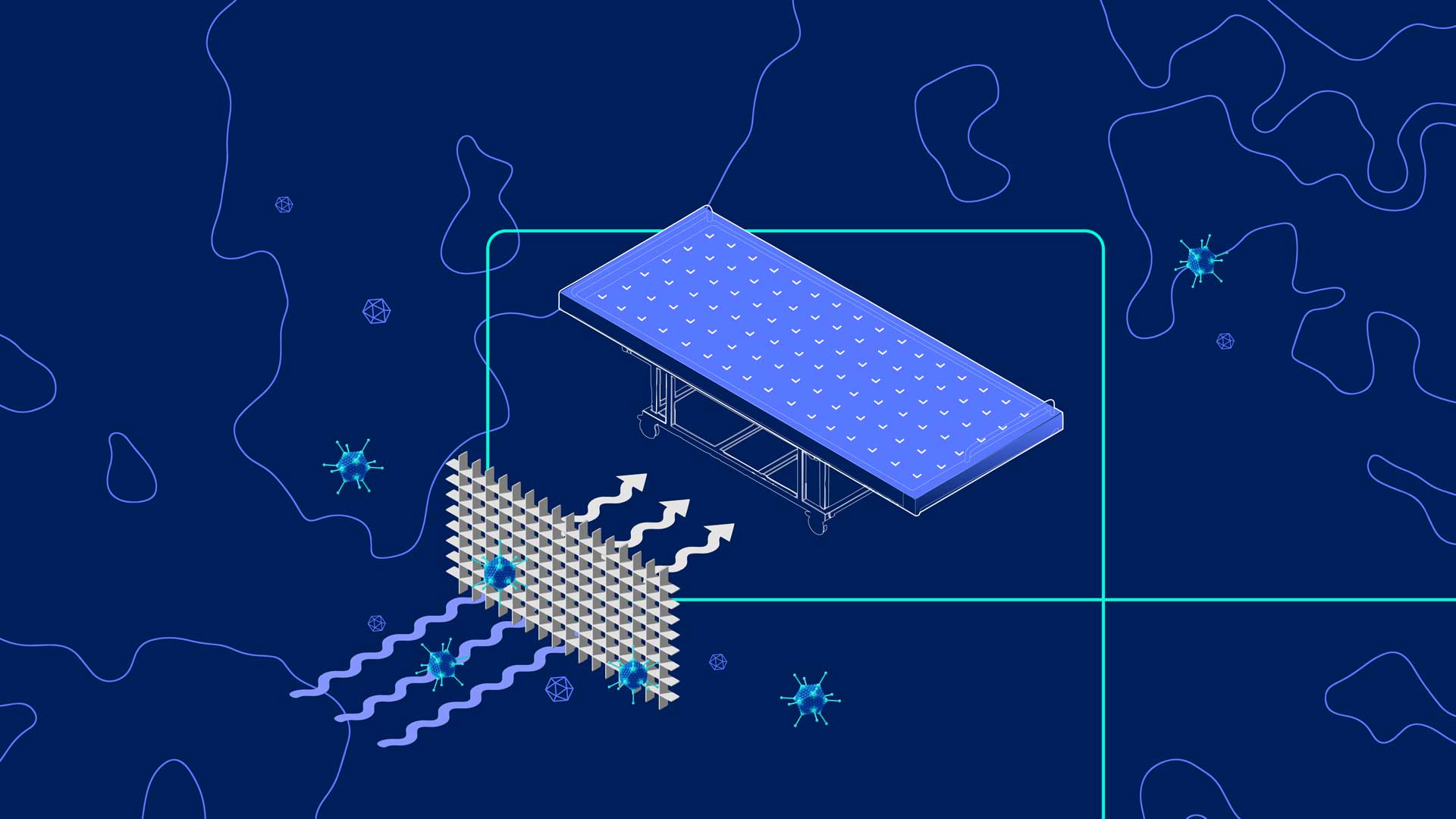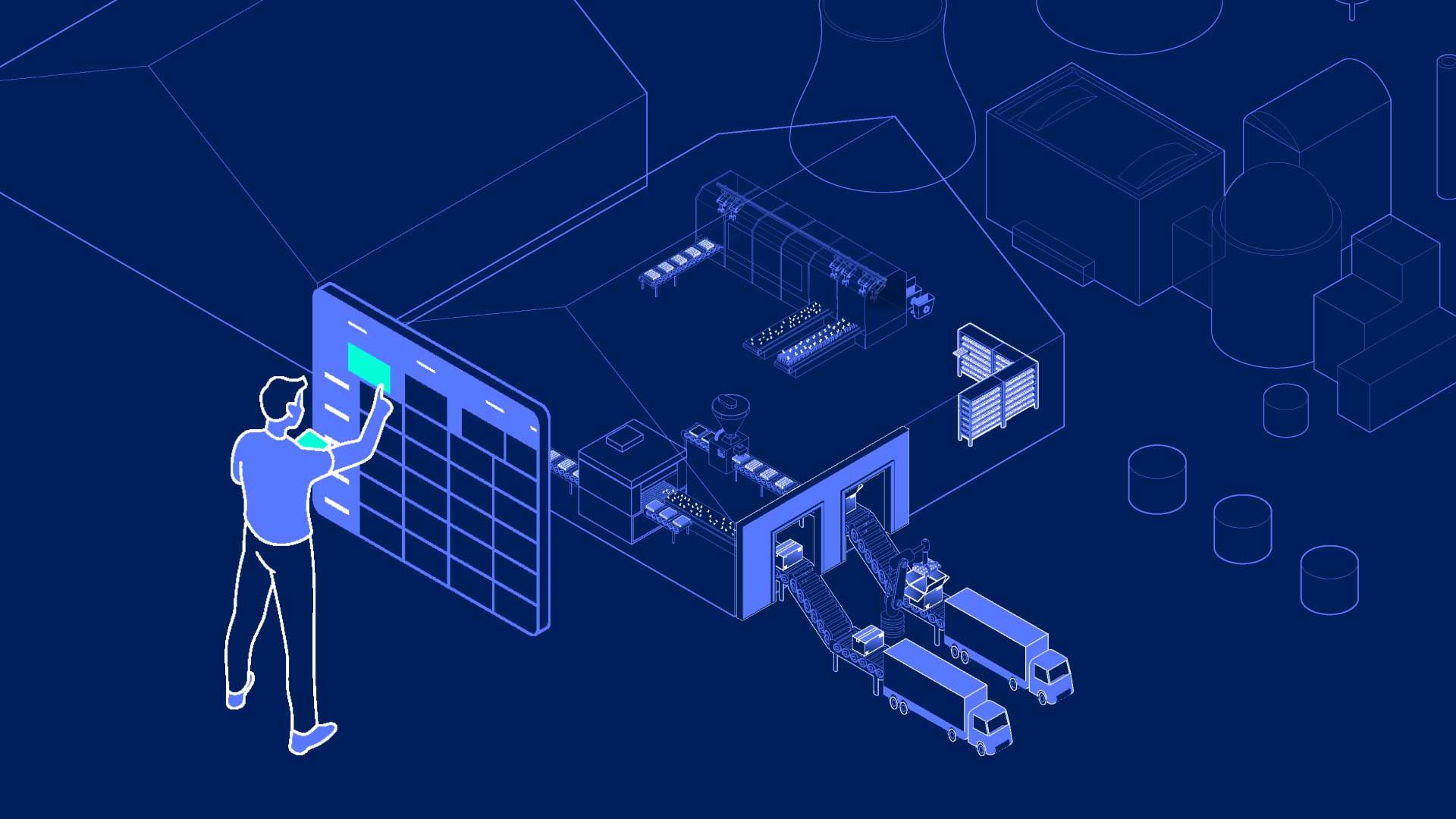Growing Basil Vertically
Basil is one of the most popular culinary herbs and is commonly grown in a vertical farm as a seed-to-harvest crop. As a tropical herb, basil requires fertile soil and 6-to-8 hours full hours of sun daily to thrive. It’s a temperature sensitive crop and is susceptible to damage if exposed to extreme changes in climate, which can make it challenging to grow in environments where elements such as heat and light cannot be completely controlled.
An IGS vertical farm uses Total Controlled Environment Agriculture (TCEA) to completely control all elements of the growing environment; heat, light, nutrient delivery and water.

How to grow basil indoors in one of our vertical farms
Using an IGS vertical farm can minimise waste, maximise profit, and streamline crop scheduling. Our bio-secure environment prevents the issue of pests and diseases associated with growing basil (such as downy mildew, Fusarium wilt [root rot], whiteflies, aphids, spider mites, leaf spot, to name a few) and allows you to grow basil that is nutritious without the use of pesticides. This stable growing environment ensures consistency of output, allowing you to increase growing cycles, improving yield and ultimately delivering improved revenue.
The flexibility of our system means that basil can be grown as either a potted plant, or processed for packaging a cut plant.
Germination takes place outside of the vertical farm in a germination chamber, where the seeds are sown and exposed to the proper conditions, allowing them to grow into seedlings. The seedlings are then transported into our Growth Trays with Lights (GTL’s) and placed inside the tower where, depending on the required specification of basil, a particular growth recipe is applied.
At IGS, a growth recipe is determined by exacting control over nutrient mix, temperature, light and humidity to deliver the perfect crop, every time.
Once the basil has reached its optimal condition, according to the specific growth recipe, it is then removed from the tower via our automation system, ready to be harvested.
How to harvest basil
The automation in an IGS vertical farm alerts system owners to the perfect time for harvesting. We would recommend harvesting automation for the quantities of basil produced by an IGS vertical farm. We do not provide harvesting technology, but work with a network of partners who provide systems which integrate easily into our platform
Some of the benefits of growing basil in an IGS vertical farm can be summarised below:
- Removes the need for pesticides and herbicides, helping to reduce impact on the environment
- Maximise harvests with our carefully developed basil growth recipes and flex your crop production methods with cut and/or live-plant production capabilities
- Enjoy a stable and consistent growing environment year-round with our total controlled environment eliminating external factors such as extreme temperatures, storms, or droughts
- Minimise energy consumption by utilising our cutting-edge technology and efficient lighting systems which uses up to 3x less energy than other vertical farms
Key performance metrics on growing basil in an IGS vertical farm
- + 20 harvest per year (10x open field, 3x glasshouse)
- ~ 98% less water required than open field
- ~ 73% less water required than greenhouse
Why choose an IGS vertical farm?
Founded in Scotland in 2013, Intelligent Growth Solutions (IGS) is a technology company combining agronomy, plant science and engineering expertise to create vertical farming systems that enables year-round growing in a controlled environment.
At IGS, our vertical farms are called Growth Towers and they use patented technology in the areas of power, control and automation to create a finely calibrated environment for growing crops and young plants. IGS achieves this through Total Controlled Environment Agriculture (TCEA), which offers consistent and predictable crop production in any suitable location with precision control over each element of the growing environment. IGS’ technology is well suited to growing a range of seed to harvest crops or positioned alongside open field or glasshouse operations to create a hybrid growing system.
As a pure technology vendor, IGS grows crops only for research and development purposes, with an experienced team of plant scientists, agronomists and horticulturalists operating from its Crop Research Centre near Dundee, Scotland. This site is adjacent to the James Hutton Institute, a world-renowned crop and plant science research facility, enabling the two organisations to collaborate closely to help advance the understanding of plant science for indoor growing.
Need help building a business case?
Adopting an IGS vertical farm presents an opportunity for basil growers to revolutionise their operations, overcome climate challenge, such as water scarcity and enhance profitability and meet the ever-growing demands of consumers seeking high-quality, sustainably grown produce.
From year-round production and optimised yields to reduced waste, operational efficiency, and scalability, the adoption of this technology can position basil growers at the forefront of the industry.
Get in touch if you would like to speak to one of our solutions experts to understand what an IGS Growth Tower could deliver for your business and what your payback period would be. Download our guide on "How an IGS vertical farm creates the perfect growing environment for basil".






.jpg)
